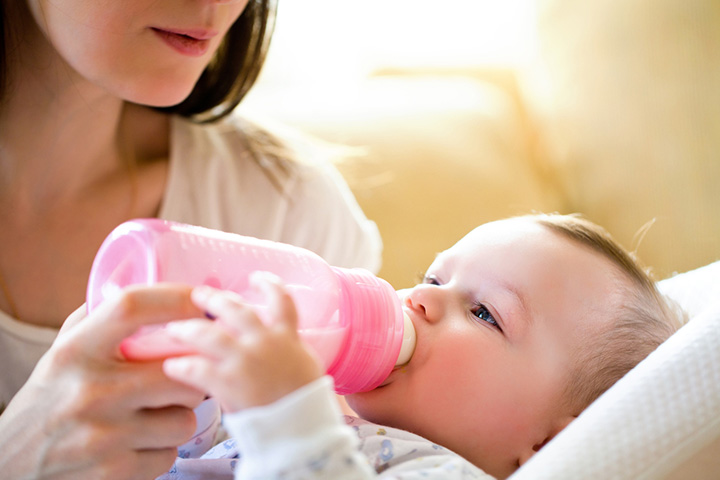
Image: Shutterstock
There are a lot of things that have changed over the past few decades, from civil rights to gay rights to (arguably) political correctness gone mad. One positive change that has been observed is the breastfeeding movement. No longer is it taboo for a woman to breastfeed in public, no longer does a mother have to hide in a poorly lit space to nurse her newborn. Another aspect of this movement is recognizing the importance of breastfeeding. Sure, you can bottle feed your baby, but breastfeeding is far more advantageous. The number of mothers who breastfeed their babies has risen over the past few decades to record numbers. In the United States, 81.1% of mothers chose to breastfeed their babies (1).
Governments, too, recognize the importance of breastfeeding and hence have tried to make efforts to increase breastfeeding rates. In the UK, a trial in offering shopping vouchers to new mothers as an incentive to breastfeed resulted in a rise in breastfeeding rates.
On the other hand, even given all of this data, it can still be difficult or impossible for some mothers to breastfeed. Reasons could vary from a physical or mental ailment or even disability. These mothers possibly see the pros of breastfeeding quite clearly, but just cannot do it despite the best of their intentions.
There’s plenty of material out there for mothers looking to read up about breastfeeding, whether it’s how to begin or how to overcome challenges. However, there seems to be very little on what to do when you just cannot breastfeed. Here are a few things to keep in mind if you find yourself in such a situation.
1. Don’t Play The Blame Game
It’s easy to start blaming yourself and have bouts of self-loathing and low self-esteem. Giving into these negative feelings isn’t going to help anyone or improve the situation in any way. Not even for a single second, you must feel that you’re inadequate or abnormal. There are lots of mothers out there in the same situation, and in this day and age, there is no such thing as being ‘normal.’ So, get back on the saddle and try to figure out how you’re going to overcome this barrier for the betterment of your child.
2. Feed The Baby With Your Own Milk
This is the first choice you have to consider. Just because you can’t breastfeed doesn’t necessarily mean you can’t provide your baby with your milk. Having the mother’s milk is the best option for any baby. Use a breast pump to get the milk out and feed the baby using a bottle or cup. It can be just as effective.
3. Feed The Baby With Donated Milk
The next best option to a mother’s milk is to get the breast milk of another mother. You can either ask a friend who has also just given birth or is still lactating or can get milk from non-profit milk banks. Don’t be afraid to ask on social media either; you never know who will come forward to give you a helping hand. Although there is some debate on milk sharing, sharing of breast milk is on the rise nonetheless (3).
4. Feed The Baby With Formula Milk
If you can’t get a hold of breast milk, then formula milk is something you can always fall back on. Even with this, one has to be careful as there have been widespread reports of contamination with infant formula. The World Health Organisation offers instructions for safe preparation and storage of infant formula (4). After reading through these guidelines, it’s also a good idea to talk to your pediatrician before giving your baby formula milk. One advantage is that it doesn’t have to be just the mom who is responsible for feeding the baby anymore. However, purchasing infant formula can be a costly affair.
The choice a mother makes about how or what she feeds her baby is entirely personal, and she should not be judged based on someone else’s opinions. To berate a woman for not breastfeeding, either because she can’t or doesn’t want to, is a pointless endeavor as it does nothing but lower the self-esteem of the mother. Being supportive of their decision, on the other hand, is the way to go.
















